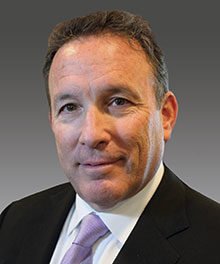Grounded!

Southwest Airlines cancelled more than 2,000 flights last weekend. As the Wall Street Journal and other news outlets reported, it was the perfect storm of air traffic control problems, staffing shortages, and bad weather. Of course, that was little comfort to the thousands of travelers stranded for two or three days while they tried to get on the next available flight out of town.
Southwest Airlines is well-known for its investments in building a great culture and smoothly-running operations since the late Herb Kelleher founded the company. Despite that, Southwest had more late and cancelled flights than any other major airline in June and July.
Like other airlines, Southwest received federal funding to avoid layoffs when the skies grew eerily quiet during the pandemic. But it still lost 4,300 employees as a result of voluntary separations and retirements. Now it’s paying the price.
It’s the latest example of a new risk for many companies as we emerge from the pandemic: Lack of staff. Many companies have been relying on skeleton crews in recent months because they simply can’t keep critical positions filled. Employers that can’t find a way to get in front of challenges in retention and hiring are going to need bulletproof plans in place to keep their operations humming some other way. This should be right up there with cybersecurity in every company’s risk management plans. You never want to get to the point that if a few crucial employees call in sick, your operations come to a grinding halt.
Airlines aren’t the only ones getting hit. Schools are turning to parents to drive buses (or in the case of Massachusetts, the National Guard), because of the national bus driver shortage. Manufacturers can’t keep production lines running, which is contributing to the supply chain issues many of us are experiencing in our daily lives. Meanwhile, more than 100,000 workers in industries from Hollywood production crews to nurses at Kaiser Permanente are now threatening to strike.
No one knows exactly why workers aren’t willing to come back to work. Nearly 40% of Americans—and 59% of those with incomes under $50,000—report they are having financial problems, so at first glance, you’d think more would be looking for jobs. The fact is, for a variety of reasons, they aren’t, and employers are going to have to keep that in mind as they manage their operations and plan new initiatives. It seems some people, irrespective of economic need, have just left the workforce. Asking the employees who are showing up to take on more responsibility may suffice for a few months, but it’s not a long-term solution, particularly at a time when many workers are reporting feelings of burnout.
Some employers are going into overdrive to create stronger cultures that make workers want to come on board and stay (have you seen the Seagram playground?), but that alone may not be enough. Many of the companies beset by labor shortages already have great cultures—or did before their teams opted out and there were fewer people to participate.
There are no easy answers. The onus is going to be on employers to connect with their employees about their concerns and challenges—whether it’s in a formal feedback loop or using a survey tool like the Employee Net Promoter Score—and truly listen to what they are saying, and respond. An issue that’s causing worker shortages in one industry may not be the same in another.
Ultimately, it’s going to be more important than ever for CEOs of middle-market firms to adopt the servant-leader mindset. Although as business leaders we’re here to serve our customers and clients, we also need to prioritize the needs of our teams.
At Marcum we’re in the people business. And that means our own people as well as our clients. That’s why we adapted our operations to meet our team’s needs throughout the pandemic, and why our business emerged from the crisis as strong or even stronger than ever. Your people are everything—something Southwest Airlines has learned the hard way.
